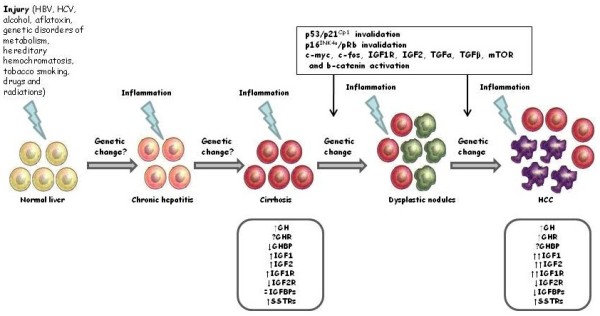Figure 1.

Scheme of hepatocarcinogenesis and relation with GH-IGF-SST system. Hepatocarcinogenesis is a multistep process generally evolving from normal liver through chronic hepatitis, cirrhosis and formation of dysplastic nodules to HCC. Several hepatocarcinogens (virus infection, alcohol consumption, genetic disorders of metabolism, hereditary hemochromatosis, tobacco smoking, aflatoxins, drugs and radiations) could cause direct or indirect damage to hepatocytes DNA (genetic change?), thus inducing a hyperproliferative status and inflammatory reactions, in particular during chronic exposure. The persistent liver damage can lead to the activation and/or inhibition of several molecular cell pathways, predisposing to the accumulation of genetic and epigenetic alterations that determines HCC development. The most important changes of molecular pathways described in HCC are reported in the text box on top of the figure. The most important changes in GH-IGF-SST system occurring during the different steps of HCC development are reported in the text boxes on the bottom of the figure.
